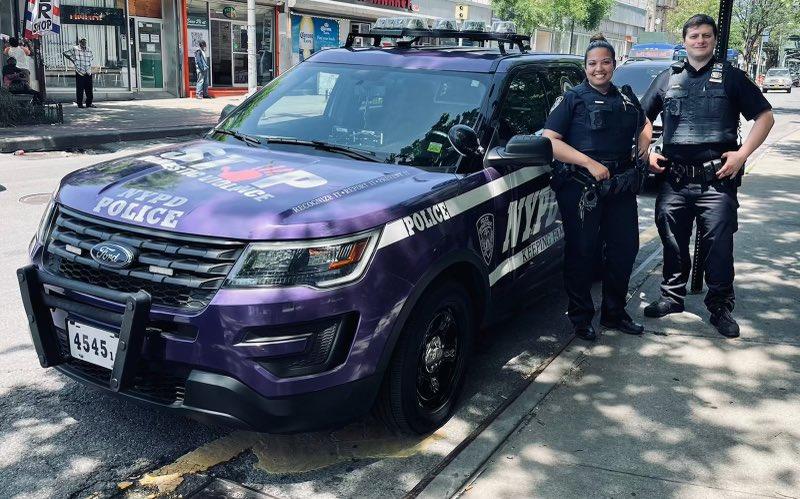NYPD Amplifies Specialized Force to Address Domestic Violence Crisis
In a decisive move to confront the persistent challenge of domestic violence, the New York Police Department has announced a major enhancement of its specialized unit, assigning 450 officers exclusively to this cause. This expansion reflects the city’s intensified dedication to safeguarding at-risk individuals and improving the overall effectiveness of law enforcement interventions. By increasing manpower and refining operational strategies, the NYPD seeks to accelerate response times, elevate victim assistance, and foster stronger community relations across all boroughs.
This initiative is grounded in data-driven methodologies aimed at early identification of high-risk cases, enabling proactive measures to prevent further harm. The revamped unit is structured to deliver comprehensive support through a combination of rapid response, thorough investigations, and community engagement.
- Enhanced training programs emphasizing trauma-sensitive approaches and conflict resolution
- Partnerships with local organizations to extend victim services beyond immediate police intervention
- Advanced technological tools for streamlined case management and interdepartmental coordination
- Dedicated 24/7 response teams focused solely on domestic violence incidents
| Unit Segment | Officer Count | Main Responsibility |
|---|---|---|
| Rapid Response Division | 150 | Immediate intervention and victim protection |
| Investigation Team | 180 | Evidence gathering and legal case support |
| Community Outreach Officers | 120 | Victim liaison and resource coordination |
Comprehensive Training Empowers Officers with Victim-Centered Skills
Officers assigned to this specialized unit undergo intensive training designed to enhance their capacity to support survivors of domestic abuse with compassion and professionalism. The curriculum prioritizes emotional intelligence, effective communication, and psychological first aid, equipping law enforcement personnel to navigate the complexities of trauma with sensitivity and respect.
Additionally, the training covers practical skills in de-escalation and crisis management, ensuring officers can safely and swiftly handle volatile situations. Key components include:
- Recognizing trauma indicators and adapting responses accordingly
- Coordinating with social service agencies to provide holistic victim care
- Understanding legal frameworks such as restraining orders and evidence protocols
- Cultural awareness to effectively serve New York’s diverse communities
| Training Area | Expected Benefits |
|---|---|
| Victim Advocacy | Builds trust and encourages cooperation |
| Crisis Intervention | Minimizes conflict escalation and injuries |
| Legal Knowledge | Enhances accuracy in case documentation |
| Community Relations | Strengthens ties with support networks |
Collaborative Community Efforts Bolster Domestic Violence Prevention
A cornerstone of the NYPD’s expanded domestic violence strategy is the deepening of partnerships with community-based organizations, shelters, healthcare providers, and advocacy groups. These alliances create a comprehensive support network that extends beyond immediate law enforcement action, addressing survivors’ long-term needs such as counseling, legal assistance, and safe housing.
Benefits derived from these partnerships include:
- Enhanced officer education on trauma-informed practices
- Improved communication pathways for reporting and follow-up care
- Jointly organized prevention campaigns and outreach initiatives
- Development of rapid response protocols to ensure victim safety
| Partner Category | Role in Prevention | Impact Achieved |
|---|---|---|
| Safe Housing Facilities | Provide emergency shelter and protection | Enhances survivor security and stability |
| Medical Institutions | Offer healthcare and trauma assessments | Facilitates early detection and intervention |
| Legal Support Services | Assist with legal protections and court navigation | Empowers victims through access to justice |
Sustained Investment and Awareness Are Vital for Long-Term Success
Experts in domestic violence prevention stress that while the NYPD’s increased officer deployment is a critical advancement, it represents only one facet of a comprehensive solution. Ongoing funding for educational outreach, victim assistance programs, and community engagement remains essential to create lasting change. Public awareness campaigns play a pivotal role in educating citizens about warning signs, available resources, and legal rights, fostering a vigilant and informed community.
Continuous professional development for officers is equally important, ensuring they remain adept at handling the evolving complexities of domestic abuse cases. The following table highlights priority areas for sustained support:
| Resource Category | Objective |
|---|---|
| Public Education Initiatives | Raise awareness and reduce stigma surrounding domestic violence |
| Advanced Officer Training | Improve sensitivity and investigative proficiency |
| Support Services for Victims | Provide counseling, shelter, and recovery resources |
| Legal Advocacy Programs | Facilitate access to protective orders and legal remedies |
By maintaining a balanced focus on these elements, the NYPD and its partners can not only respond more effectively to domestic violence incidents but also work proactively to prevent their occurrence, ultimately breaking the cycle of abuse and enhancing safety for New Yorkers.
Conclusion
The NYPD’s strategic expansion of its domestic violence unit, with 450 officers dedicated to this critical issue, represents a landmark commitment to protecting vulnerable individuals throughout New York City. Through enhanced training, community collaboration, and technological advancements, the department is poised to deliver faster, more compassionate, and more effective responses. As this initiative progresses, its success will serve as a model for integrated law enforcement and community efforts aimed at eradicating domestic violence and fostering safer neighborhoods.













